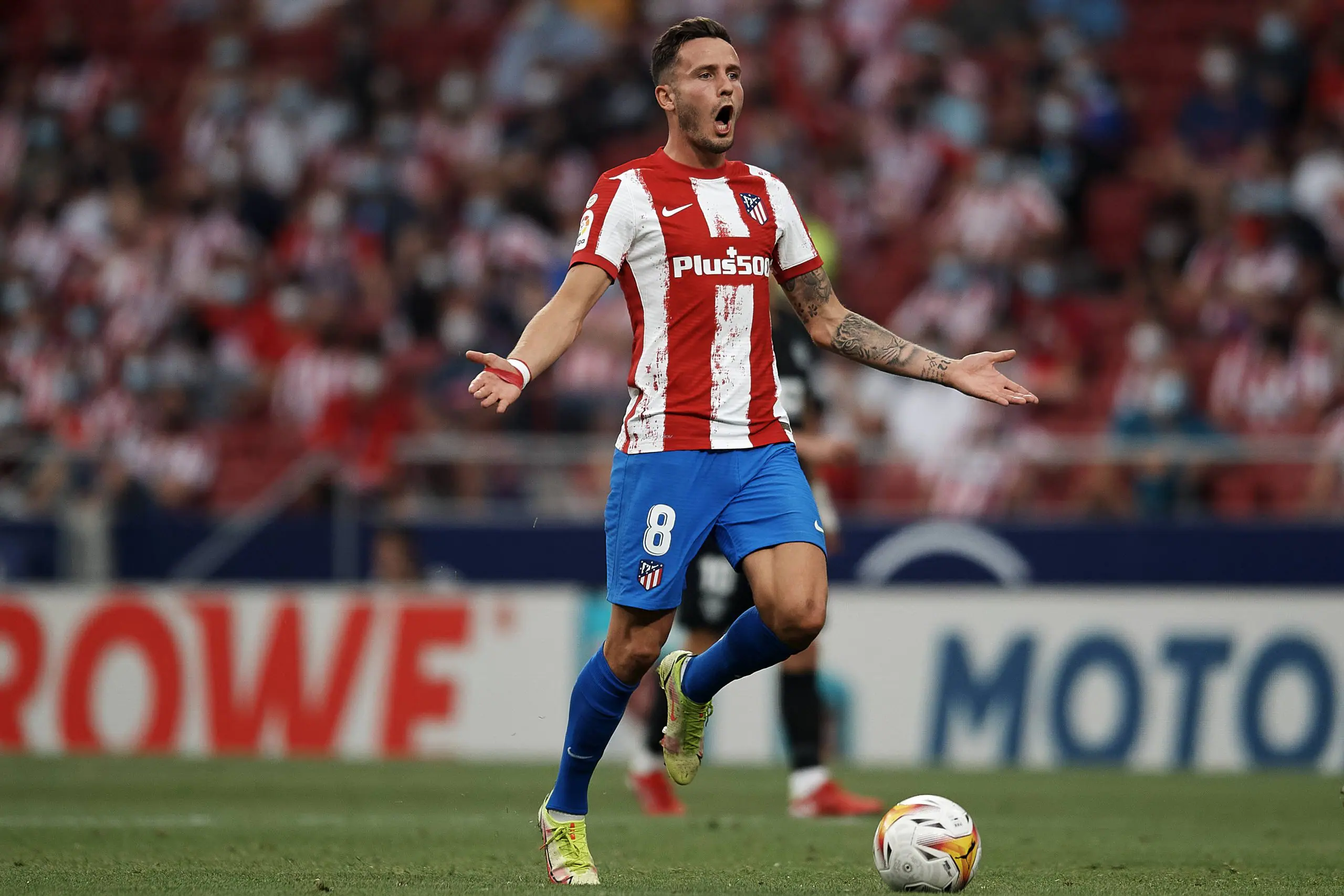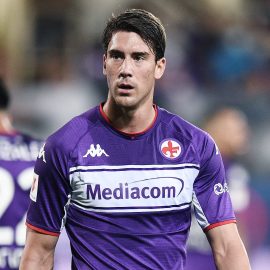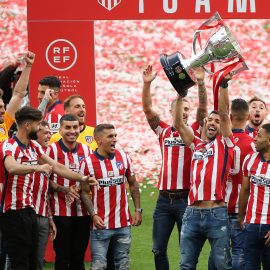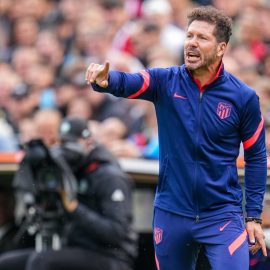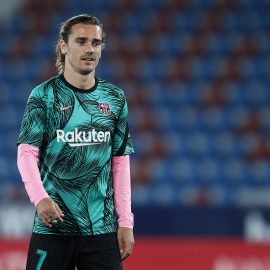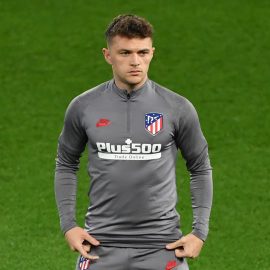In much of the world, professional sports serve as little more than a form of entertainment – a world of glorified, physically gifted athletes who are paid astronomical wages (although, based on the simple law of demand, rightfully so) to wow us with their trade. For most of us, the largely frivolous sphere of football rarely (if ever) comes into contact with the austere sphere of politics, the only exceptions being the presentation of an award to a national team or a charitable event.
But such is not the case in Spain. In a way that few in other countries understand from the outside, football on the Iberian Peninsula is inextricably tied to the vibrant political affairs that have shaped the country’s modern history. It is this unique facet that sets La Liga apart from any other national sporting league in the world and markedly differentiates it from its main competitors, the English Premier League or Italian Serie A.
The root of Spain’s politico-athletic fusion comes from the Spanish Civil War, the central event in Spain’s modern history that scarred the country not only geographically and socially, but also metaphysically. As renowned French writer Albert Camus put it, “It was in Spain that [my generation] learned that one can be right and yet be beaten, that force can vanquish spirit, that there are times when courage is not its own recompense. It is this, doubtless, which explains why so many, the world over, feel the Spanish drama as a personal tragedy”.
Of course it is the Barcelona-Real Madrid rivalry through which politics was most famously sewn into the fabric of Spanish football. During the first month of the Spanish Civil war, Barca’s politically left-leaning president, Josep Sunyol, was murdered by the Falangistas (the Nationalist military movement). Catalunya’s capitol city Barcelona, which was already the ensign for the progressive movements of fashion, food, architecture, and art, became the symbol for progressive politics – the resistance against the oppression of dictatorial government.
With the banning of the Catalan, Gallego (Galician), Valencian, and Euskara (Basque) languages under Generalissimo Francisco Franco’s fascist regime, one of the few places that Catalan could be spoken freely (and safely) was in the Barca stadium. Adopting the Catalan motto, ‘Mes que un club’, FC Barcelona became ‘more than a club’ in its encounters against Real Madrid, the club associated with the oppressive rule of the Capitol government.
How close the ties between the Madrid club and Franco’s fascist government were in actuality remains ambiguous at best. Madrid was one of the last Republican (democratic) strongholds to fall to the Nationalist offensive and Franco was reportedly an Atletico Madrid supporter whereas Real Madrid continued to bear the symbol of the Spanish crown (King Juan Carlos I despised the dictatorial regime, but Franco tolerated the royal institution in an effort to maintain absolute control).
The arrival of Madrid legend Alfredo Di Stefano at the Bernabeu, however, remains an undisputed instance of the fascist government’s political influence. Wholly left out of the Marshall Plan to rebuild Europe, a war-torn and impoverished Spain was slipping from Franco’s undisputed control. Had Di Stefano signed for Barcelona, the public attention would have shifted toward Spain’s gateway to the free-thinking democratic ideals flooding in from France and thus the necessary strings were pulled to have Di Stefano, a player of unmatched talent, call the Spanish capitol, the symbol of Franco’s power, home.
Alfredo & co.
After Franco’s death, football became even more politically charged as each of Spain’s diverse regions, having all had their culture and languages quashed by Franco’s fascist boots, celebrated its own freedom of regional identity through its football club. Such expressions are best exemplified by the actions of Athletic Bilbao goalkeeper Jose Angel Iribar who in December 1976, a year after Franco’s death, marched onto the field ahead of a match against San Sebastian carrying the Basque flag and ceremonially placed it on the centre-circle. It was the first public display of the flag, which had been outlawed for 40 years.
Across the country, clubs from the different regions began to regain their history as club names, stadium names, and club crests started to change to regional references, most notably in the Basque Country, Galicia, Valencia, and Catalunya (e.g. Espanyol changed from the Castilian Spanish ‘Real Club Deportivo Espanol’ to the Catalan ‘Reial Club Deportiu Espanyol de Barcelona’).
While Franco’s dictatorship is now history, football still has strong political influences as Spain’s relatively young democracy (or rather constitutional monarchy) continues to evolve. Athletic Bilbao continues to practice a strong devotion to political separatism by only employing Basque players. While the all-Basque roster has seen a few exceptions to the rule – now players of any origin can play for Athletic, just as long as they acquired their skills in the Basque Country (an exception very much enjoyed by Athletic’s 16-year-old phenom Jonas Ramalho, Los Leones’ first black player) – one can imagine the sort of tension that invariably surrounded a match in the 1990’s during the height of the Basque political militant group, ETA.
To this day, in matches at the San Mames, a few hundred hard-core fans called the “Herri Norte” (Euskara for “People of the North”) hold up ETA banners and sing, “Let’s kill a Spaniard” to the tune of ‘When the Saints Go Marching In’; the song is sung in Spanish so to drive the message home. It bears mentioning though that all teams have their minority of hardliners with Real Madrid’s right-wing Ultra Sur group infamous for their racial abuse of players.
In terms of football however, there is something to be said for Athletic Bilbao’s impressive feat of having remained contentious in La Liga for so long despite such a limited talent pool from which to fish.
Athletic continue to showcase their homegrown talent
In Catalunya, issues of regional autonomy from the central government have recently arisen with even more ardour than usual as both Barca coach Pep Guardiola and club president Joan Laporta have recently incited rifts by weighing in on the matter, the coach controversially describing Catalunya as “its own country with its own language” and Laporta declaring that “Without its own state, Catalunya is dead”.
Such statements have strong political implications as Catalunya’s regional government conflicts with the central Madrid-based government on issues ranging from the distribution of resources to the languages taught in schools.
As the central government began to invest in Spain’s infrastructure, building a high-speed train network to connect the country, the southern region of Andalusia (whose capital is Seville) was first to be connected to the Spanish capital via the state-of-the-art transportation network. The reason was largely speculated to be the favourable relations and common cultural roots/language shared between the two regions. The high-speed train connecting Barcelona to Madrid did not come until many years later.
With respect to the languages promoted in public schools, where Catalan, Gallego, Valencian, and Euskara were once banned under Franco, now Catalunyan government officials promote the first language taught in schools to be Catalan. As a result, Spanish is taught but a few hours a week and the children of Spanish-speakers have limited options of studying Castilian Spanish -ironically just the opposite of the choice championed by traditionally democratic principles.
While for some, Guardiola and Laporta’s politically charged comments seem out of the realm of football, within the context of history, they are actually very relevant. With some political factions talking of secession from Spain and Catalunya contributing to more than 25% of Spain’s Gross Domestic Product (GDP), it remains to be seen if Spanish Prime Minister Jose Luis Zapatero, a Barca supporter, has something to contribute to the matter.
Pep has always been vocal on and off the pitch
In terms of foreign policy, it is largely due to Spain’s domestic issues with her independence-minded provinces that have prevented the country from supporting Kosovo’s bid for independence, which if internationally recognised could set a precedent for Catalunya and the Basque country (among others) to separate from the Kingdom of Spain.
Another issue of principal importance to the regions is national team play with both the Basque country and Catalunya having made appeals to have their own ‘national teams’ stand as separate entities from the Spanish national team.
Catalonia coach and former Barca great Johan Cruyff, who refused to play for Real Madrid in the early 1970’s because of the club’s reputed link with Franco, has recently called up a number of Catalan players (Xavi, Puyol, Pique, Bojan, Busquets, even Fabregas) for the friendly match against Maradona’s Argentina national side later this month and with the Dutchman an outspoken proponent of Catalunyan independence, it remains to be seen how far the Madrid-based Spanish Football Federation (Real Federacion Espanola de Futbol; RFEF) will be pushed.
In the Basque country, the Basque ‘national team’ has even made an appeal to UEFA for recognition as an independent entity.
Professional football is far more than a multi-million euro revenue-generating machine in Spain. With roots that run thicker than the blood spilled in a ravaging civil war and a brutal dictatorship of nearly 40 years, football serves as the physical manifestation of political ideologies, the mouthpiece for civil discourse, and the vessel for national or regional identity.
In no other country is sport as inexorably linked to domestic political affairs as it is in Spain. It seems there is far more to chanting ¡Hala Madrid!, ¡Visca Barca!, ¡Amunt Valencia!, ¡Aupa Athletic!, or ¡Forza Depor! than simply supporting one’s team. In Spain, it is this special connection that truly makes football the beautiful game.
Cyrus C. Malek, Goal.com
Add Sportslens to your Google News Feed!
